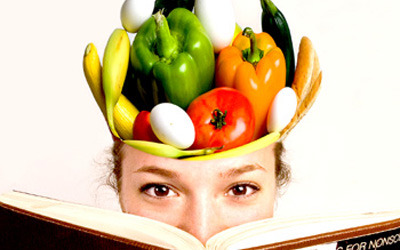
This is what you should eat when there's a test to beat
Finals week diet in my college apartment was simple, predictable, took days to return to normal sleeping patterns afterwards, and took months to work off. It went a little something like coffee and pop tarts for breakfast, coffee and cheap hamburgers for lunch, Dr. Pepper, pizza and dark chocolate M&Ms for dinner and midnight snack. Nutrition experts agree with the coffee and dark chocolate, but would like me to talk to you about some better alternatives than whatever you manage to scrape from the bottom of the fryer.
1. Caffeine
Yes, it does help you focus. Yes, it must be taken in moderation or else you’ll start your presentation by screaming, “OHMIGODYOUGUYSHI!” As the saying goes, everything in moderation. Energy drinks have more caffeine than soda has more caffeine than coffee has more caffeine than tea has more caffeine than (dark, specifically) chocolate. I don’t care what anyone says, 5 Hour Energy still freaks me out.
2. Fish
Nobody wants to be that guy in the crowded room with the tuna sandwich, but if it’s a serious study group and/or tutoring session, everyone should be eating one. It’s the fatty acids, you understand, such as Omega-3 acids found in all fish which help build concentration. It’s also good for your heart, which dictates blood flow, which is essential to concentration. So, essentially, fish are double threats.
3. Fruits and Berries
Well, specifically, fruits and berries that are high in anti-oxidants, such as apples, pomegranates, and blueberries. No, that does not extend to their martini versions, which are the opposite of helpful.
4. Nuts
Nuts are the pearl earrings of the nutritional world – you can pair them with anything and they work great! They work particularly well with berries and chocolate. Try them with fish, too, if you think you have time for a proper meal. In fact, nuts have the same deal as fish. They are high in fatty acids and unsaturated fat, which is good for both heart and brain function.
5. Whole Grains
White bread is bad for you, and not just because you now have to cut off your own crusts. Whole grains contain folic acid and niacin, which are crucial to developing and maintaining focus. Yes, processed flours do add in some niacin, but there’s still no source like the original. Suck it up, people, eat the husk.
Note: This post was written by Megan Ybarra
 WE'RE OPEN! CALL NOW
WE'RE OPEN! CALL NOW